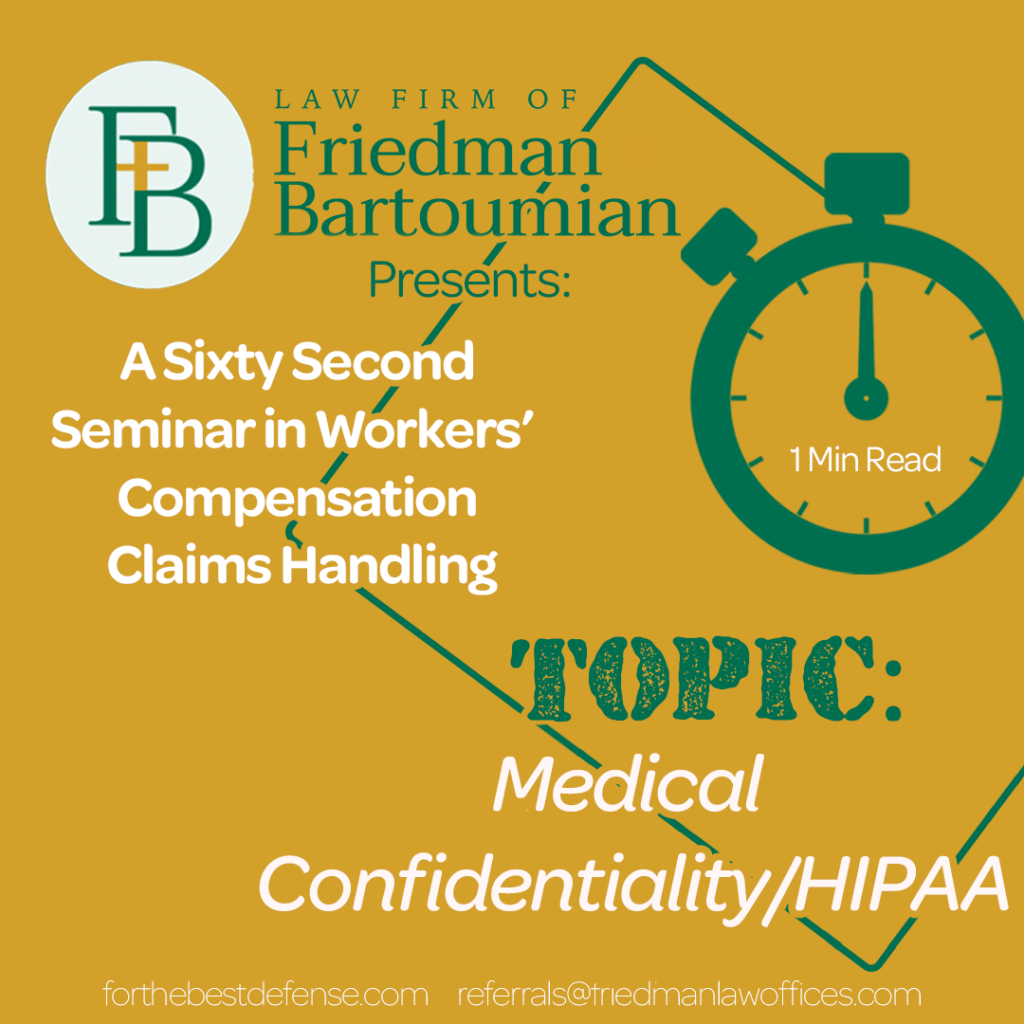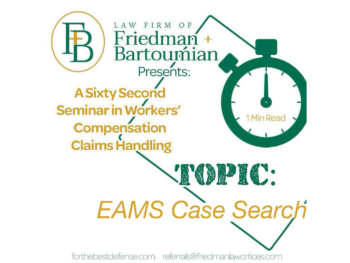
We believe with a high degree of certainty that almost every workers’ compensation claims administrator has encountered a situation where a medical provider refused to release information unless the adjuster first produced a HIPAA release signed by the applicant. HIPAA is an acronym for Health Insurance Portability and Accountability Act of 1996, and is codified under 42 U.S.C. § 1320(d), et seq. The stated intent of HIPAA is “to improve the efficiency of the health information system through the establishment of standards and requirements for the electronic transmission of certain health information.”
A claims adjuster’s usual response to a request for a signed HIPAA release is to advise the medical provider that HIPAA does not apply to workers’ compensation. However, the provider almost always disagrees, resulting in a stalemate. The purpose of today’s blog is to explain HIPAA law to claims professionals and medical providers in the hope that this recurring problem can be eliminated.
To that end, we recommend that instead of arguing with a medical provider over the production of medical records without a HIPAA release, a claims adjuster may wish to educate them.
While it is true that in most situations a signed HIPAA release is required before a provider can divulge medical information, providers fail to realize that numerous exceptions exist. One such exception is when dealing with a matter related to workers’ compensation. However, many claims administrators are unable to cite the specific legal authority that exempts workers’ comp from HIPAA. The regulation to be referenced is 45 CFR § 164.512(l). This section from the Code of Federal Regulations states “… a covered entity may disclose protected health information as authorized by and to the extent necessary to comply with laws in relation to workers’ compensation or other similar programs, established by law, that provide benefits for work-related injuries or illnesses without regard to fault.”
Instead of arguing with a medical provider over service of medical records without a HIPAA release, a claims adjuster may wish to educate them. All too often claims adjusters become frustrated when dealing with an uncooperative records clerk where the adjuster ends up threatening not to pay the bill unless records are provided. In most situations the clerk remains unphased by the threat of non-payment, as collections is not part of their job description. Their involvement with the claims adjuster ends upon conclusion of the phone call, leaving the claims adjuster to continue the argument with the billing manager.
Allow us to offer a twist that most claims professionals and records clerks have probably never considered. When a records clerk refuses to turn over records not requiring a HIPAA release in a workers’ compensation case, such refusal, ironically, is itself a violation of HIPAA law, specifically 45 CFR § 164.512(1). Again, this regulation allows medical records to be distributed without the necessity of a HIPAA release for purposes related to workers’ compensation. Be ready to point this out to a records clerk the next time a dispute arises.
Importantly, California has its own medical confidentiality law under Civil Code 56, also known as the Confidentiality of Medical Information Act (CMIA). Exceptions to this act are like those found in HIPAA. See Civil Code § 56.30(f), which provides that medical information may be disclosed for purposes related to workers’ compensation without being subject to the limitations of CMIA.


 Red Flag Settlement Offers: A Sixty-Second Seminar in Workers’ Compensation Claims Handling
Red Flag Settlement Offers: A Sixty-Second Seminar in Workers’ Compensation Claims Handling
Leave a Reply